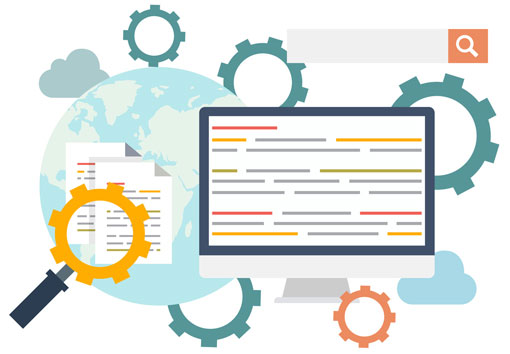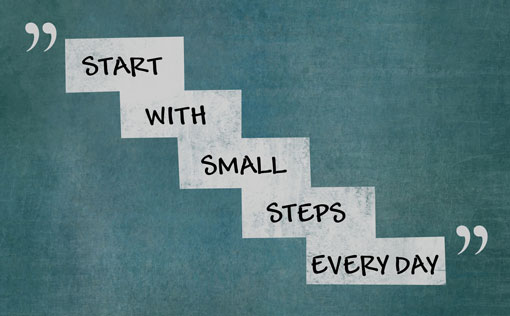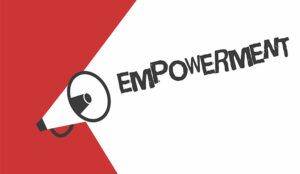Our panel of experts explain how to really ingrain agent empowerment in your company culture – and where you might be getting it wrong.
What’s the big deal about agent empowerment?
Empowering your agents won’t cause a revolt
Some contact centre managers micromanage their workforce to the extent that they create a parent–child relationship. They fear that empowerment will see their agents revolt and run wild.
This is a myth.
“Don’t be afraid. Since we began empowering staff late last year, agents have only made use of their empowerment initiatives around 400 times – out of 60,000 customer contacts!” said Andrew, one of our readers.
A number of business outcomes that many organisations strive for are driven by empowerment and autonomy, including job satisfaction, efficiency, morale and employee retention.
There is also a strong link between empowerment and customer satisfaction, as agents can “think outside the box” to please their customers.
You agents may not be as empowered as you think they are
Many managers think that their front-line agents are empowered because their company documents say so, but these policies aren’t always reflective of what happens on the floor.
A number of barriers can get in the way of agents living and breathing your empowerment initiatives, including lack of training, inconsistency from the management team and being disciplined for “misuse” of a goodwill gesture.
The only way to find out if your agents are really empowered is to talk to them, observe their behaviour and take positive steps to implement empowerment across your contact centre.
What does agent empowerment look like?
Empowered agents have access to the tools they need to do a good job, are listened to, are capable of making decisions, and are respected by other areas of the business.
Tools
Empowered agents have access to a good knowledge management and customer relationship management (CRM) system that will give them the answers they need to effectively resolve customer queries.

It isn’t good enough just to have these systems set up, they need to be well indexed and up to date, as well as easy to use and read.
Not sure how this is working in your contact centre? Sit with your agents and find out if they are really using their systems, or whether they think it is quicker and easier to ask their friend.
Listening to the frontline
Agents also need to feel that their thoughts and opinions matter and that they are listened to by the organisation, especially when it comes to what is best for the customer.
Here are some ways to capture the voice of the frontline:
- Focus groups give agents regular opportunities to discuss pain points, customer frustrations, and how they could make their jobs better.
- Suggestion schemes are an easy way to gain feedback from the front line, but you must remember to close the loop on all of the suggestions to maintain engagement.
- Use insight analysis – capturing data from customer interactions – to explore the question “how can I make this experience even better?”
For more ideas on capturing the voice of the frontline, read our article 14 Tips for Collecting Advisor Feedback
Decision-making
Empowerment is about giving agents the ability to make their own decisions. This can lead to amazing outcomes, or “moments of wow” for the customer.
These experiences can even go viral on social media, like the case of the Virgin Media agent who sent a Peppa Pig toy along with an engineer, after a mother tweeted that her two-year-old couldn’t watch her favourite TV show.
This “moment of wow” wouldn’t have been possible if the agent had to go through a strict company procedure to issue a goodwill gesture.

Carolyn Blunt
Respect for the front line
“The rest of the organisation also has a role to play in empowering the front line, as agents need to feel they have the respect and support of other departments in delivering a great customer experience,” said Carolyn Blunt at Real Results Training. “Look around your operation. Do agents run into difficulty every time they try to pass a customer through to another department?”
Flexible shift arrangements give agents control of their work/life balance
Empowerment is more than just allowing agents to issue a refund or feedback their thoughts, it extends to their scheduling preferences too.
Giving everyone access to an employee portal – that they can use even when they are away from the office – can empower agents to take control of their own work/ life balance. You can also set up auto-approval with pre-set rules in place so no one has to wait until the next morning for an answer.

- Preference scheduling – Employees set their own preferences for when they’d like to work. For example, a student might only want to work evenings and weekends to fit in around their studies.
- Availability patterns – Employees highlight when they are available to work, allowing the organisation to schedule around the days they are unavailable.
- Shift swaps – The ability to swap shifts with their colleagues after the schedule has been made. A “shift trade board” can help agents swap their shift anonymously with one another, without trading openly with one person like for like. (This can be even better if the system allows individuals to swap a 4-hour shift for a 7-hour shift, or swap a day off with one of their colleagues.)
It is important to note that these freedoms take time to get used to. Run any new shift system on a sample team first to check for functionality.

David Evans
Let agents vote on the shift pattern they’d like to work to
“You can also involve agents in the planning process by letting them vote on which shift pattern the organisation should use.
For example, you could present your front-line staff with 3 different scheduling-pattern options, all of which adhere to meeting your service level targets, but divide the shift lengths up differently across the week.
You can then open the vote to which pattern most people prefer. This can increase buy-in, as well as create a shift pattern and company culture that suits the needs of your current workforce,” said David Evans at Business Systems.
Giving agents autonomy, mastery and purpose is key to empowerment
Every organisation will have a different definition of empowerment that engages with the needs of their unique workforce.
Putting this aside, there are 3 universal themes which, according to Emma Bridger at People Lab, drive successful empowerment initiatives:
1. Autonomy

Emma Bridger
Most people working for an organisation understand the context of their interactions and want to do the right thing.
The more autonomy (defined as independence, or freedom from external control or influence) you can give to your agents, the more empowered they will be.
Often agents know how things need to be, but the company gets in their way. This can be a source of frustration for your front line, especially if they are speaking to upset customers all day as a direct consequence of a process error.
2. Mastery
People want to make progress at work and feel like they are great at their job.
To truly empower your workforce, it is important to give your agents the technology, training and support they need to please customers and progress in their careers.
3. Purpose
Your front line also needs a firm grasp of what their job role is and how it fits into the bigger picture. They need to see the point and purpose of their day-to-day efforts.
This in-depth understanding of their place in the organisation can also support their ability to make the right choices for the customer, without having to discuss everything with a supervisor first.
If you are interested in finding out more about what really engages your employees (and it isn’t money!), watch this video on RSA ANIMATE: Drive: The surprising truth about what motivates us:
What do I need to do to empower my agents?
Check the “service attitude” on the floor
Check the “service attitude” – is everyone using the systems in place properly? Do they want to help your customers or is there an “us and them” divide, created by angry callers?
Spend time with your agents on the floor, observing them to see how they really feel about your customers, and exactly how they are using the systems.
Train your front line about the appropriate use of goodwill gestures
The success of any empowerment initiative comes down to good training and awareness.
Agents need to understand how and when giving a goodwill gesture is appropriate, and to know that saying sorry and rectifying the issue is sometimes enough to please a customer.
This also comes down to mentoring and coaching on a regular basis to make sure goodwill gestures are being issued appropriately and that any bad habits are nipped in the bud.
Take small steps to nurture a culture of empowerment

Developing a culture of empowerment in any organisation won’t happen overnight. It takes small steps and perseverance to get it right.
The starting point will vary from contact centre to contact centre, but you need to be especially careful in an organisation where employees are used to being spoon-fed and punished for stepping out of line.
Test the waters of empowerment with small changes, such as asking “what would you like us to do differently?”
Then act on those suggestions. The little things can be really powerful here. Do they want Mars bars in the vending machines? Would they like to wear jeans on a Friday?
Taking these suggestions on board and making changes can show your agents that you do care about what they say, giving them the confidence to put forward bigger ideas in the future.
Good management and consistency are key to success
Empowerment initiatives are only as good as the management team behind them.
Make sure that everyone in a position of leadership understands what empowerment means in your organisation, so that there is a consistent approach to empowerment initiatives across the floor.
Mistakes to avoid
Overlooking the role of your line managers
How much are you investing in the people that manage your agents (and engagement and empowerment levels) in your contact centre?
Being a great manager is not something most people naturally know how to do. Regular training and communication is key to helping your management team support an empowered workforce.
…And keeping your line managers sat at their desks

Where are your line managers? If they are sat at their desk all day, they probably don’t know about who is using empowerment initiatives and how it is working.
Line managers need to balance time spent on the floor with strategic and operational activities.
Making it up as you go along
You are far more likely to get buy-in from your front line if they understand that all of these small changes feed into a bigger vision for a better future – and a company where they are empowered to do the best job they can.
Hoping that sending out “empowerment emails” will be enough
Empowering your workforce isn’t about sending out emails saying “you are now empowered to do X, Y and Z”, as the chances are these either won’t be read or will cause confusion.
Invest time and resources in a long-term strategy to empower your front line, stepping away from the computer to engage with everyone on the floor.
Ignoring the need to monitor the use of empowerment initiatives
Empowering agents is about consistency, not pockets of agents working on an initiative under one team leader while others completely discount it.
To support this, you need to build empowerment and “goodwill gestures” into your quality monitoring process.
This will help ensure that every agent is being assessed against the same criteria – and that conversations about empowerment are happening in your contact centre.
Punishing agents who overuse goodwill initiatives
Don’t ever punish anyone for trying to use a goodwill gesture or exercise any other empowerment initiative, as this could lead to disengagement from the initiative.
Mentoring and training is key to ensuring empowerment is being used properly in the contact centre, but there should never be any serious consequences for an agent who accidentally misuses an empowerment initiative.
What has been your experience of empowering your agents? Do you think your front line could be more empowered?
Author: Megan Jones
Published On: 25th May 2016 - Last modified: 13th Jan 2025
Read more about - Call Centre Management, Business Systems, Carolyn Blunt, Editor's Picks, Employee Engagement, Empowering Agents



















We also find that by conducting agent surveys before and after changes, our clients capture valuable feedback from agents that allows the tuning and improvement of every phase.